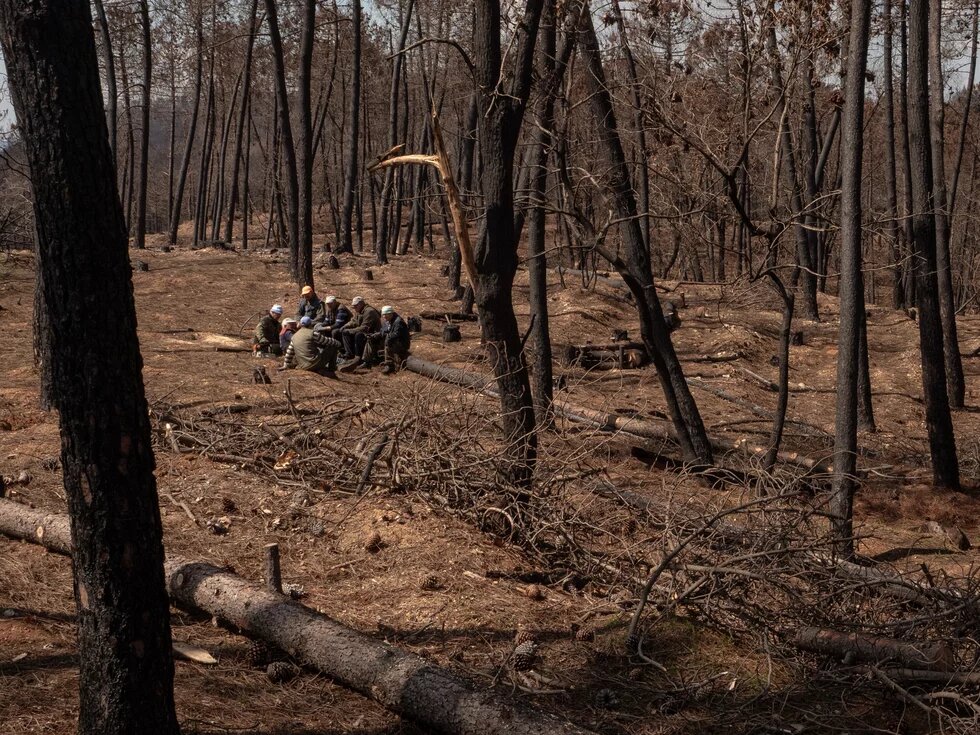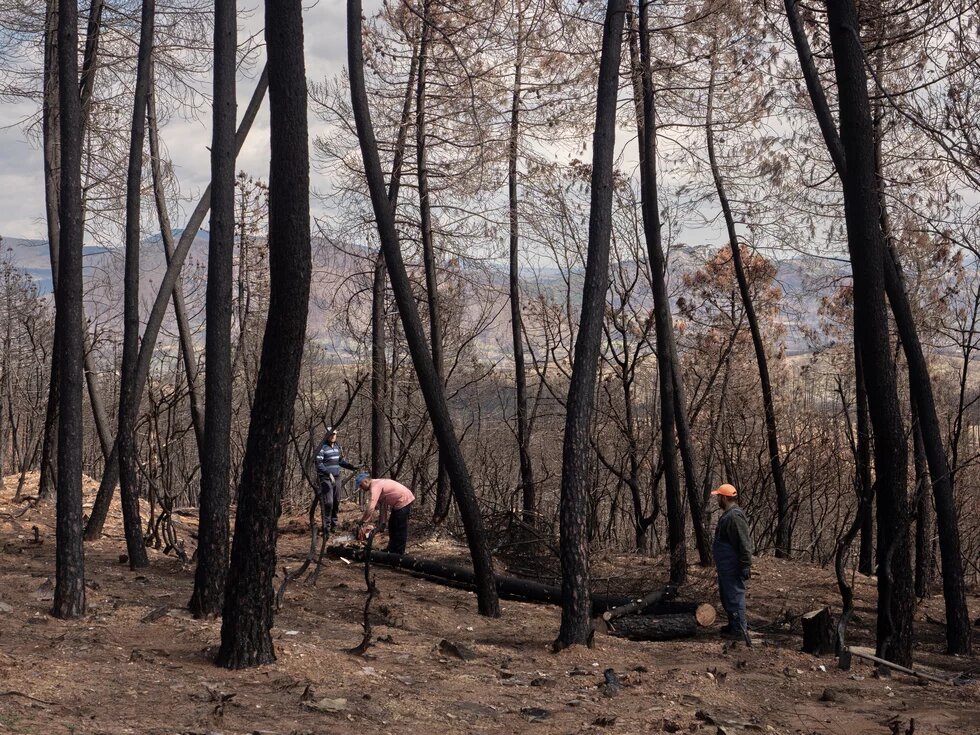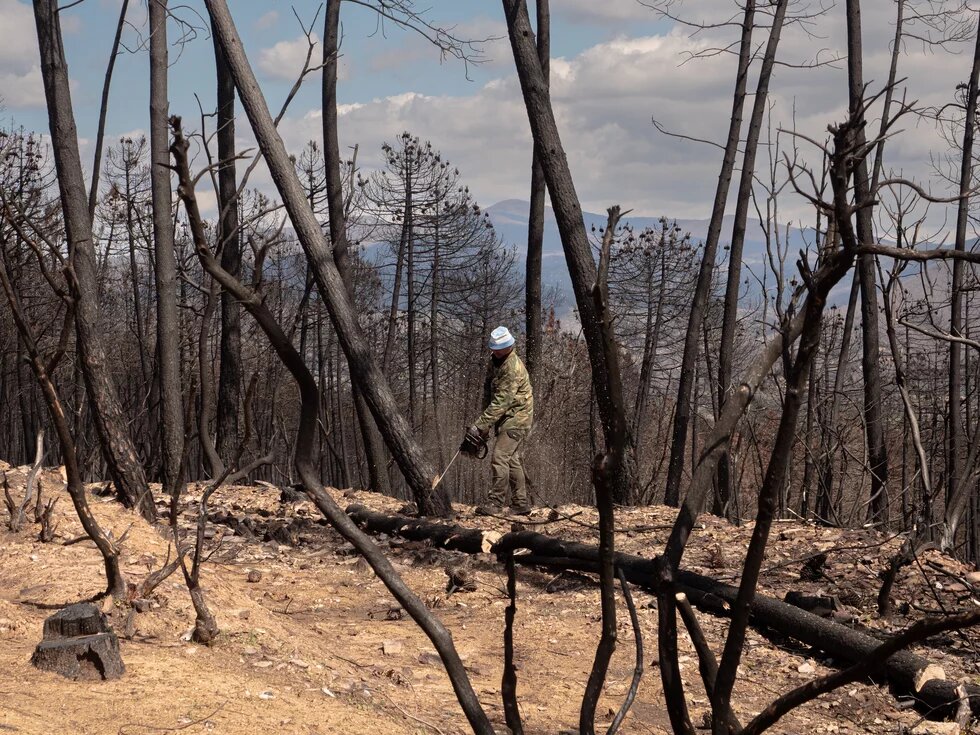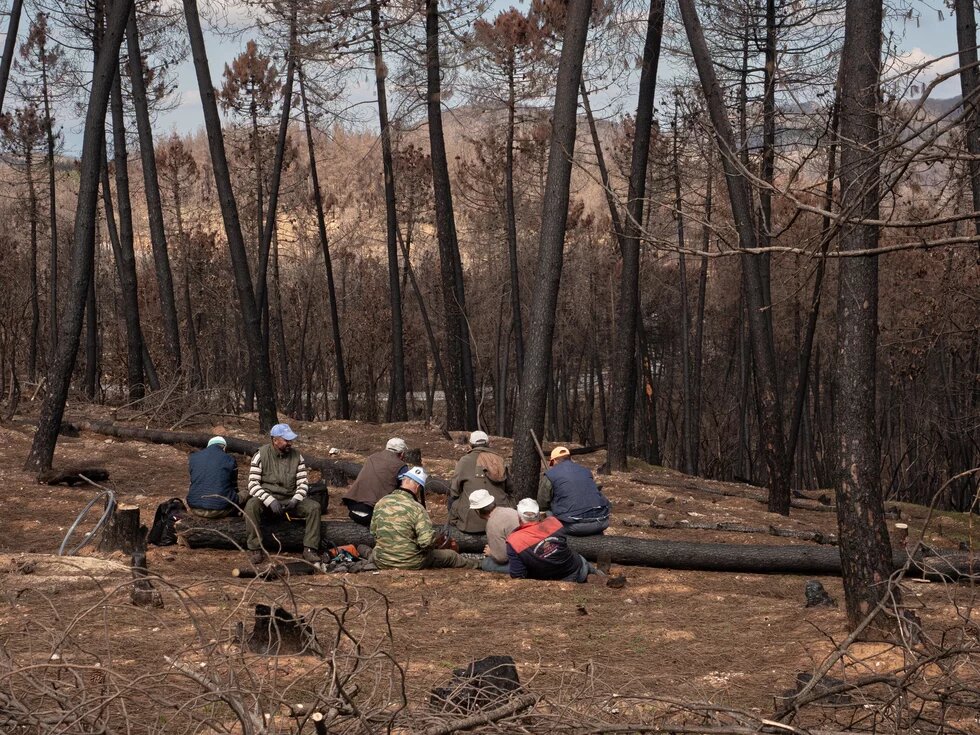
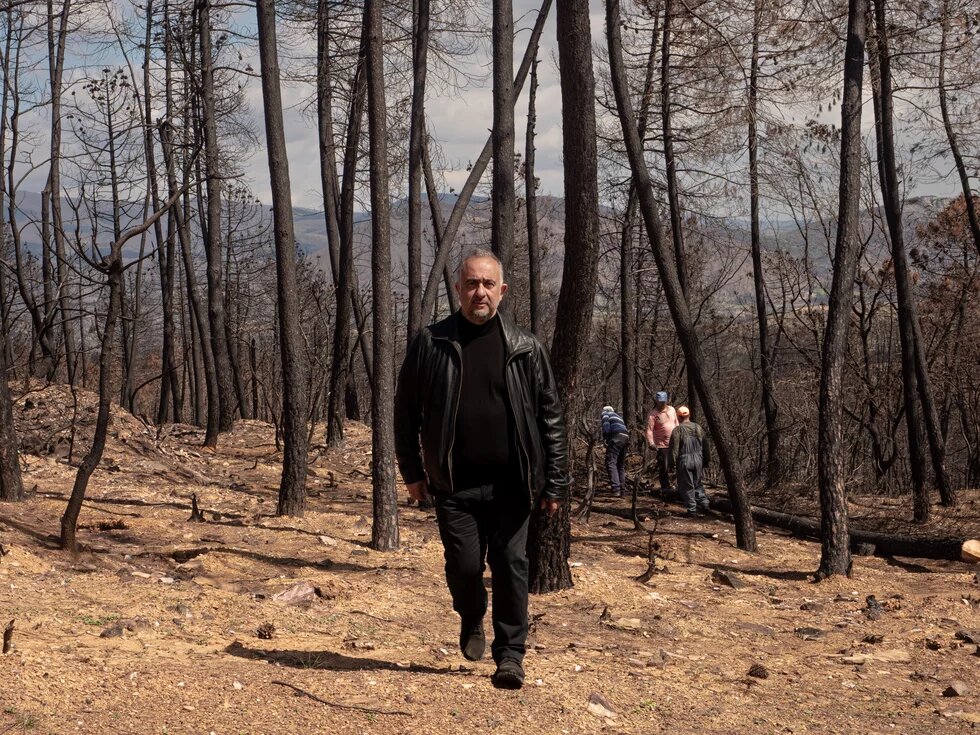
The hills around Alexandroupoli are black and barren now, scorched clean by the fires of last summer. Pinecones crunch underfoot, as Giorgos Pistolas walks through what used to be his forest, his son Konstantinos trailing a few steps behind him. The trunks stand blackened and fractured, their charred bark stripped away. In the distance, the droning buzz of chainsaws echoes through the air.
Giorgos pauses beside a tree stump, its surface freshly cut. The pale, exposed wood looking as if the tree had been green and full of life just yesterday. Yet months have passed since the disaster. He kneels, runs his finger over the rings, counting them one by one: “Forty-eight, forty-nine, fifty”, he pauses. “This tree was about as old as I am.”
In 1972, the first forest ranger of the area held a grand barbecue to celebrate the launch of a largescale reforestation project, marking the start of a greener future for the residents of Alexandroupoli. Decades later, the forest was engulfed in flames, burning with an uncontrollable fury. The fire that ravaged the region in the summer of 2023 was one of the most devastating in the region’s history. Fueled by extreme heat and strong winds, the flames spread rapidly, destroying thousands of hectares of land and prompting mass evacuations. Authorities declared a state of emergency as the inferno threatened to consume entire villages.
Giorgos spent every day and night battling the flames alongside other firefighters. His son Konstantinos hardly saw him during those weeks, as Giorgos returned home only for a few hours of restless sleep before heading back to the inferno.
As the fire grew dangerously close to the last remaining sector of old pines, Giorgos had to make a desperate decision. Setting a backfire – a high-stakes maneuver usually reserved for professional firefighters – was his last resort, a gamble that could have saved the forest or cost him his freedom. The flames he initiated roared to life, meant to consume the fire’s fuel and stop its advance. Against all odds, the plan worked. The advancing flames were halted, and a part of the forest was saved. In the end, forester Giorgos Pistolas was awarded a medal for setting fire to his own woods.
He used to love walking through the forest. But remembering that feels too much like longing for something that will never come back. The fire burnt down seventy-five percent of the forest he has spent his life protecting. Now, with the fire only a grim memory, he finds himself overseeing what seems like yet another kind of destruction: the felling of trees.
Clusters of forestry workers, mostly men from nearby villages, move methodically through the ruined forest. They cut down the blackened trunks, trim away the charred branches, and drag the burned logs in to stacks on the forest floor. The logs form a barrier to prevent the soil from eroding and what little remains of the forest from being washed away. With each tree they fell, they lay a small foundation for the forest’s rebirth. “Without soil, there can be no vegetation, and without vegetation, no wildlife,” he explains. He knows he might never see the forest in its full glory again. “But maybe, he adds, his gaze shifting to his son Konstantinos, “my son might”.
